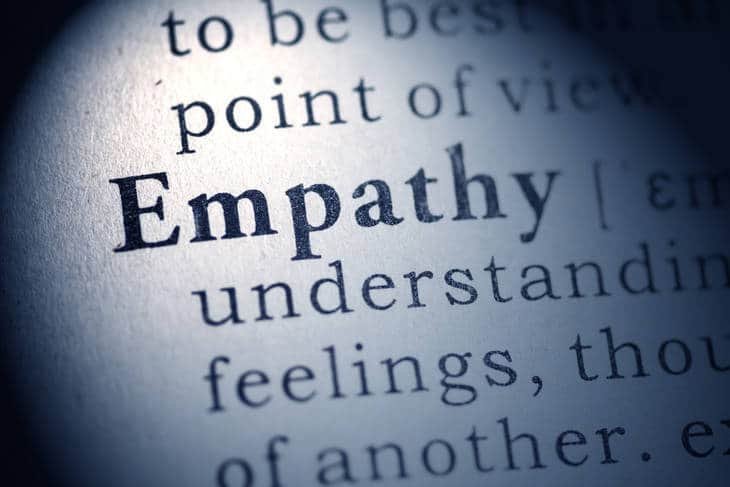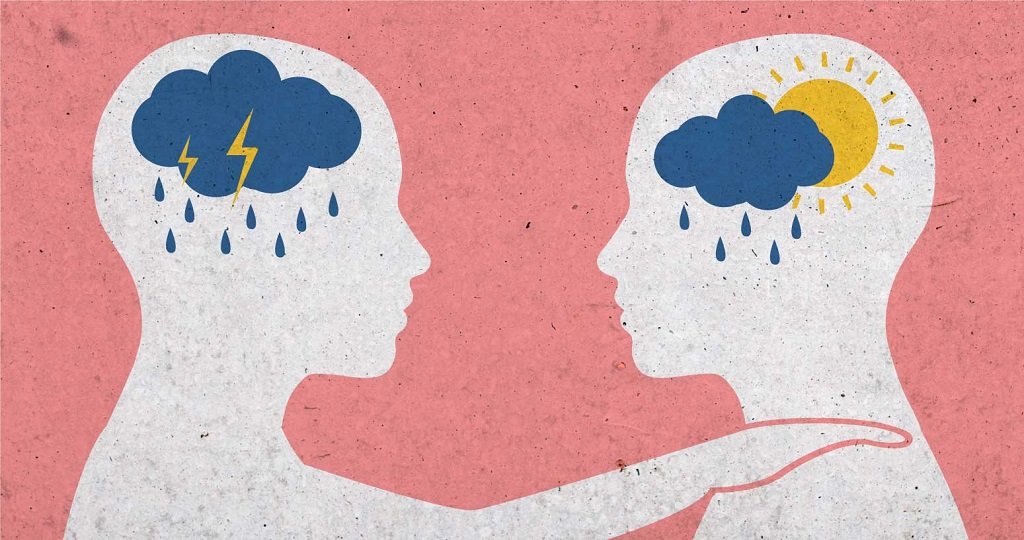Today, we will discuss the Power of Empathy, possibly one of our essential humane traits. On the way, we will also discuss why empathy is important. Over sympathy, many people prefer empathy. Compassion is just showing concern for someone distressed. Empathy comes with regard and motivates the distressed person, showing them that they can carry on, no matter what. It is an effort to rekindle their spirit, which is much more needed & preferable.
Why Empathy is Important

The power of empathy is essential in almost every part of daily life. It allows us to consider others related to friends, loved ones, co-workers, and strangers, significantly impacting the world.
1. Personal Life
Healthy relationships need nurture, attention & understanding. A friendship or romantic relationship that deficiencies empathy and compassion will stumble. When people only think of their interests, the other people in the relationships will suffer. If one in marriage declines to see things from the other’s perspective, they will start to have marital issues.
No two people will ever think exactly alike, and no two people will have the same experiences. Both people in a relationship bring their thoughts, life experiences, and struggles. Without taking the time to relay one another’s feelings and perspectives, people in relationships will start to feel unloved and uncared for.
2. Work Life
For many, a workplace is a place for teamwork. For things that need a group effort, it’s tremendously important to take the time to relate to co-workers. Even if people are not exactly working on one project, getting along with associated workers is still vital. Using empathy is an essential part of a good working relationship. Without it, it’s much easier to fall into arguments and disagreements. It is also highly significant for management to use empathy.
Bosses devoid of empathy are likely to subject their employees to unfair practices. Without empathy, managers may push employees to work beyond what is healthy or be excessively unforgiving when an employee makes a mistake.
3. For The World
From a global viewpoint, empathy is essential, especially when it leads to consideration. This type of empathy impulses people to dive in and help when there are major disasters. People are willing to help others they have never met because they know they would also need help if things were reversed. Without compassionate empathy, the world would be a much darker and less efficient place to live.
Power of Empathy

1. Empathy Boosts Innovation and Engagement
Business success in any crisis will depend on employee efficiency. Employee innovation refers to an individual’s ability to create new ideas, processes, and approaches to achieving goals. Work engagement reflects employees’ emotional speculation about their work and the company’s mission.
A finding in some studies illuminates a clear path from the senior leader and manager empathy to enhanced employee innovation and work engagement. It has been found that employees with highly empathic senior leaders and managers report being much more creative and engaged than those with less empathic managers and leaders.
2. Empathic Leaders Can Help Decrease Burnout
The brutal and long-lasting burden of the COVID-19 pandemic has pushed many people to their limits in and out of the workplace. 60% of survey respondents reported that they were experiencing burnout. To unscramble the sources of burnout, employees were asked if their burnout resulted from factors in their work, work experiences related to COVID-19, or personal lives.
People experience burnout as being frustrated, emotionally tired, overstretched or stretched to their limits, worn-out and tired, and/or exhausted in the morning at the thought of the day. Workplace burnout is considered deep enough to be included in the International Classification of Diseases by the World Health Organization, which defines it as “a syndrome abstracted as resulting from chronic workplace stress that has not been successfully managed.”
Employee efficiency, engagement, and organizational obligation can tumble when burnout occurs. Throughout times of crisis, leaders must be alert to the potential for employee burnout and take action to avert it.
3. Empathic Leaders Respect Employee Circumstances
It is hard for employees to feel a sense of fitting at work and bring their authentic selves to work if they don’t think their living conditions are valued and respected by their company.
In particular, previous Catalyst research shows that feeling “othered” and on guard to protect against bias and judgment because of gender, race, and/or ethnicity imposes an emotional toll on people of color that impacts their capability to prosper both in and out of the workplace. During the pandemic, many employees’ life situations have changed drastically; managers and leaders need to recognize and empathize with those changes.
Demonstrating empathy gestures to employees that their perspectives and experiences matter. Empathy is a skill that allows managers and leaders to better understand and provide sustenance for employees.
4. Supporting Life and Work Together
Beyond respecting and appreciating employee life situations, empathic leaders help employees manage to balance their work and personal lives. This is particularly important when, for many people, life and work responsibilities are not easily divisible into certain hours or days of the week. As employees’ lives and jobs become more integrated, leaders should demonstrate empathy to support this increasingly mutual way of working.
When employees feel that their managers and senior leaders are more empathic, they report being much more able to balance work, family, and personal responsibilities.
5. Senior Leader Empathy Predicts Lower Intent to Leave
Given their highly noticeable and widespread influence on the organization, senior leaders have a unique chance to affect many people’s lives when they lead with empathy. As with managers, senior leaders can benefit from their position to model empathy and establish that a better understanding of employee emotions can inform business decisions.
Leading with empathy allows senior leaders to play an exclusive role in employee retention in a way that direct managers do not. Explicitly, increased senior leader empathy predicts a decreased will to leave.
6. Empower Personal Life
The proven Power of Empathy also can empower one’s personal life. An empathetic person is a more efficient family member/friend than those who are not. People from family and friends come to that person confidently because they know them to be a sensible person. They know they can get the necessary motivation from that person, projecting them as reliable.
Conclusion
On a basic emotional level, we all want to feel safe, seen, heard, and not judged. Empathy allows you to find a peaceful place in your heart that wants to make a bridge to the nature of another, an instinct that can bring healing. However, being empathic doesn’t mean you are a doormat or tolerate hurtful conduct to keep the peace in an unhealthy situation.
Instead, once you see where someone is coming from, you can make the best decisions about a relationship. Empathy doesn’t always prosper in resolving differences. Still, it is the best chance we have of reaching a concession and getting along. The Power of Empathy also helps us to become better leaders & human beings.










